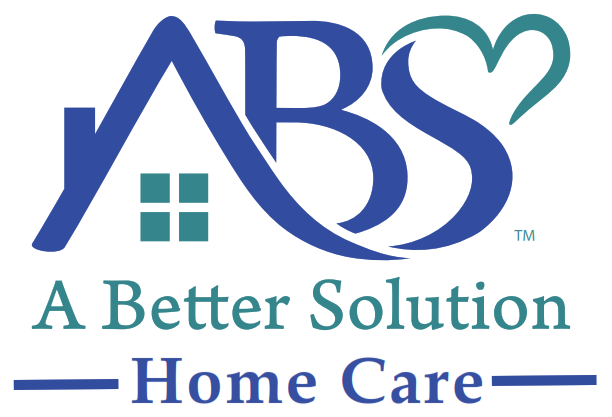
Respite Care vs. Full-Time Home Care: What’s the Right Choice for Your Family?
Abs
06-10-2025
As our loved ones age or experience health challenges, families are often faced with the difficult decision of how best to support their care needs. Among the many options available, respite care and full-time home care are two of the most common. While both offer valuable support, they serve different purposes and fit different family situations.
Understanding the differences between respite care vs. full-time home care can help families make informed, confident choices. This blog breaks down the purpose, benefits, and considerations of each type of care, helping you determine the best path forward for your family.
What is Respite Care?
Respite care is a short-term relief solution designed to give primary caregivers a much-needed break. It provides temporary care for someone who requires assistance with daily activities, whether due to age, illness, or disability. Families often turn to respite care for elderly loved ones during travel, illness, or personal time away. It can be scheduled regularly or used as needed in emergencies. Options include short term respite care (a few hours or days) and long-term respite care (weeks at a time).
The flexibility of respite care services makes them especially helpful for family members experiencing burnout or needing a temporary solution. Whether it's in-home or in a care facility, respite offers peace of mind by ensuring your loved one receives proper attention in your absence.
What is Full-Time Home Care?
Full-time home care provides ongoing, consistent assistance for individuals who need regular support. This includes 24 hour home care for those with advanced medical needs, mobility challenges, or cognitive impairments such as dementia. This type of home care usually covers personal hygiene, meal preparation, medication management, companionship, and in some cases, skilled nursing. It’s often the best solution for families who cannot meet their loved one’s daily needs on their own.
The benefits of home care for seniors include remaining in the comfort of home, preserving independence, and receiving one-on-one attention. For families, full-time care reduces stress and ensures comprehensive support is always available.
Top 10 Signs Your Loved One May Need Respite Care or Full-Time Home Care
Determining when it’s time to seek additional help for a loved one can be difficult. These common warning signs can guide families in recognizing when respite care or full-time home care might be necessary.
1. Caregiver Burnout
Family caregivers often experience emotional, mental, and physical exhaustion. If you’re feeling overwhelmed, fatigued, or emotionally drained, respite care services can provide a much-needed break and reduce long-term stress.
2. Missed or Mismanaged Medications
If your loved one is forgetting to take medications, taking them incorrectly, or running out without noticing, this could lead to serious health risks. At home care for the elderly ensures medications are administered safely and consistently.
3. Noticeable Decline in Personal Hygiene
A decline in grooming, bathing, or dressing may signal that your loved one needs hands-on help. Home care providers assist with daily hygiene while maintaining dignity and comfort.
4. Increased Risk of Falls or Accidents
Frequent trips, falls, or unexplained bruises could indicate mobility issues or confusion. 24 hour home care offers ongoing supervision to reduce these safety risks.
5. Forgetfulness or Cognitive Changes
Increased confusion, getting lost in familiar places, or forgetting essential tasks may be signs of cognitive decline. Home senior care supports those with dementia or memory loss.
6. Poor Nutrition and Unexplained Weight Loss
If your loved one is skipping meals or losing weight unintentionally, they may need help preparing meals or remembering to eat. Caregivers ensure proper nutrition and hydration.
7. Emotional Isolation or Depression
Withdrawal from activities, friends, or family may suggest emotional distress. Both respite and full-time caregivers offer companionship to improve mood and mental well-being.
8. Unfinished Housework or Unsafe Living Conditions
An increasingly cluttered, dirty, or hazardous living space could point to an inability to manage household responsibilities. Home care professionals can assist with light housekeeping.
9. Caregiver Guilt or Resentment
If you find yourself feeling frustrated or resentful in your caregiving role, it’s a clear sign that support is needed. Respite care for elderly individuals allows caregivers time to recharge without guilt.
10. Increased Medical Needs
If your loved one has a complex health condition requiring regular monitoring or skilled care, full-time home care may be the safest and most effective solution.
Key Differences Between Respite Care and Full-Time Home Care
While respite care and home care both provide essential support, their roles, durations, and impacts differ significantly. Understanding these differences helps families match care to their current needs.
Duration of Care
Respite care is designed to be temporary, ranging from a few hours to several weeks. It’s ideal for situations where the primary caregiver needs a short break or is temporarily unavailable. In contrast, full-time home care is continuous and ongoing, typically for individuals with long-term or permanent care needs.
Scope and Level of Care
Full-time care offers a comprehensive range of services, including medical support, personal hygiene, meal preparation, and companionship. Respite care services may provide similar services but on a more limited, short-term basis depending on the situation.
Financial Considerations
Respite care is often more affordable because of its temporary nature. It may also be easier to arrange on short notice. On the other hand, 24 hour home care comes with higher ongoing costs, but it may be partially covered by insurance or long-term care plans.
Impact on Family Caregivers
Respite care directly supports caregivers by allowing them time to rest, recover, or attend to other responsibilities. Full-time care typically replaces the caregiver role altogether, which can relieve the family of stress but may also feel emotionally challenging for some.
How to Decide Which Is Right for Your Family
Choosing between respite care vs. home care requires a thorough evaluation of your loved one’s needs, your own capacity, and long-term goals.
Assess Your Loved One’s Daily Needs
Start by tracking daily activities: Are they struggling with bathing, eating, or managing medications? If their needs are occasional, short term respite care may be enough. If they require daily or hourly support, full-time home care is likely the better fit.
Consider Caregiver Availability and Burnout
If you’re the primary caregiver, ask yourself: Can I continue to manage this role without sacrificing my health, job, or relationships? If not, respite allows you to rest while still ensuring your loved one’s safety. For caregivers with no additional help, full-time support might be necessary.
Evaluate Financial Resources and Insurance
Compare the costs of respite care vs. home care and investigate what’s covered under private insurance, Medicaid, or long-term care plans. Keep in mind that the cost of care can vary based on location, level of need, and service provider.
Reflect on Your Family’s Emotional and Physical Health
Caring for a loved one is deeply emotional. If caregiving is beginning to impact your family’s peace, relationships, or physical health, it may be time to introduce respite care or move to a full-time care solution. The benefits of home care for seniors extend to the entire family, improving quality of life for everyone involved.
How A Better Solution Home Care Can Help
At A Better Solution Home Care, we understand that every family’s situation is unique. Whether you’re navigating caregiver fatigue or facing increasing medical needs for a loved one, our team is here to provide both respite care and full-time home care that truly fits your life.
Customized Care Plans for Every Family
We don’t believe in one-size-fits-all care. Our professionals work closely with families to create personalized care plans, whether you're looking for short term respite care for a few hours a week or consistent 24 hour home care for long-term support.
Trained, Compassionate, and Reliable Caregivers
Our caregivers are thoroughly screened, professionally trained, and matched carefully with each client. With experience in everything from mobility support to memory care, our team ensures your loved one is treated with the same respect and kindness you would offer.
Flexible Scheduling and Seamless Transitions
We make it easy to start or adjust care as needs change. Whether you’re transitioning from respite care to full-time assistance or simply need occasional coverage, we offer flexible scheduling to accommodate your family’s routines, emergencies, and evolving priorities.
Support for Both Clients and Caregivers
We care for the whole family. Our services not only benefit seniors but also reduce stress, burnout, and overwhelm for family caregivers. That’s why many families start with respite care for elderly loved ones before transitioning to ongoing care when the time feels right.
From everyday companionship to complex care needs, A Better Solution Home Care provides dependable support with dignity and compassion.
Making the Right Choice for Your Family Starts with the Right Support
Choosing between respite care and full-time home care isn’t just a logistical decision, it’s an emotional one. It’s about ensuring your loved one is safe, comfortable, and well cared for while also preserving the well-being of your family. By understanding the differences, evaluating your needs honestly, and seeking guidance from trusted professionals, you can move forward with clarity and confidence.
Let A Better Solution Home Care be your partner in this journey.
Contact us today for a free care consultation, and let us help you build a plan that fits your needs—whether it’s a few hours of respite care a week or full-time, around-the-clock home support.
